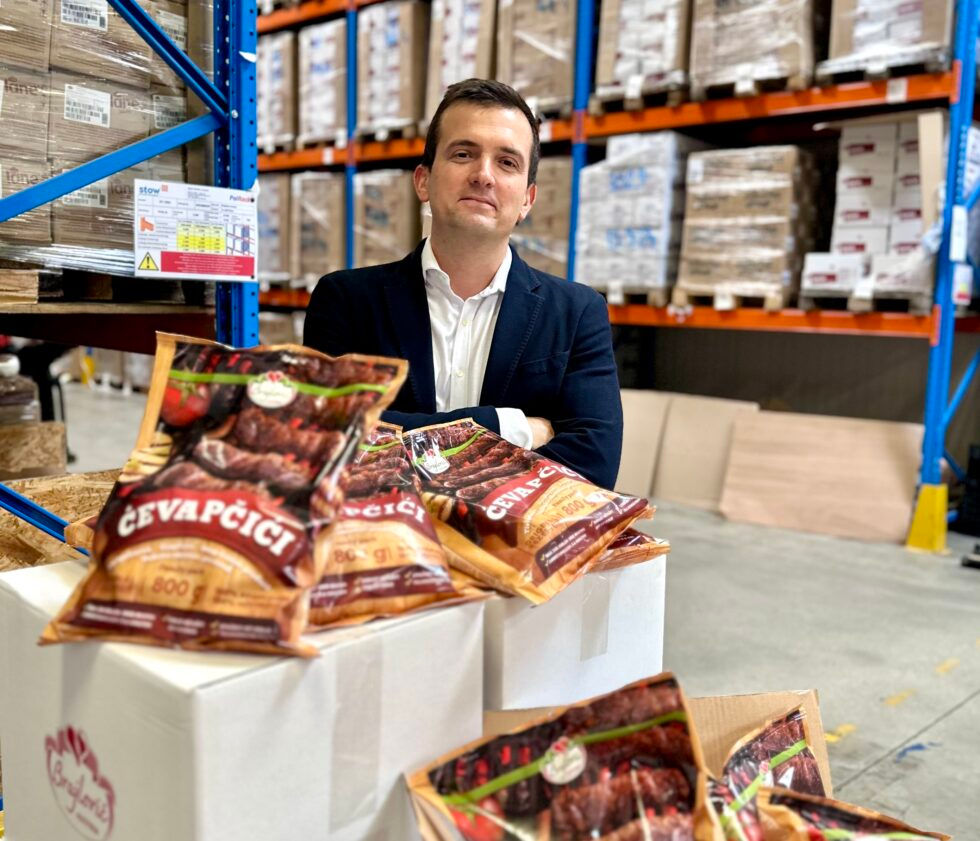Austria’s Ćevapčići Emperor
- Martin Stellnberger
- Jul 4, 2025
- 3 min read
Success story. How a former Bosnian WU student managed to pave the way for the popular dish, as well as other Balkan delicacies, into supermarkets across Europe.

What does a student from the Balkans do when he wants to satisfy his craving for food from home while in Vienna? Yes, he goes to one of the many Balkan restaurants and stuffs himself. That would be a temporary solution. But Mirza Haračić wanted a permanent one – and not just for himself. That’s why he founded a company together with two fellow students, which today satisfies the longing of many compatriots for original ćevapčići and other Balkan delicacies.
In 1995, Mirza Haračić came to Vienna from Bosnia and Herzegovina to study. He soon realized that, despite geographic proximity and a large community, local grocery stores barely offered products from his homeland. “Our idea was to change that,” recalls the now 46-year-old, as he and two other WU students recognized a huge market gap.
Local Production
So the students established contact with a major Bosnian meat processing company, which signaled interest in cooperation. However, one major hurdle had to be overcome: since Bosnia is not an EU member, it could not export meat to the EU. So the Bosnian partner wanted to know whether production could be organized in Austria and distribution across the EU.
“That’s how three students and the partner from Bosnia founded Brajlovic GmbH,” says the company’s CEO.
Today the company is called Adriatic Group, employs 70 people in Vienna alone, and is one of the leading food producers and distributors of products from the Western Balkans for the EU market. “At first, we only produced smoked beef (Bosnian: suho meso) and beef sausage (sudžuk), later ćevapčići were added. Then we started wholesaling other food items like coffee, sweets, pickled vegetables, etc.,” explains Haračić, whose company now stocks most of the Balkan food shelves in Austrian supermarkets. Today, these shelves are no longer an exception – they are the rule. In the 1990s, that was not a given.
“Buyers in supermarkets were skeptical at first. The products were too exotic for them – even though many people from the Balkans already lived here at the time,” says Haračić and draws a parallel to Scandinavia: “There, you’ll find 12- to 15-meter-long shelves in supermarkets filled only with Balkan products. In Austria, things are still conservative.” Why? “It’s the society. Scandinavia has always been more open to immigrants. They are more willing to try new products there.”
But even in Austria, consumer behavior has changed significantly in recent years. “You can feel that we from the Balkans are part of this society.” Not only are Balkan people well integrated in Austria, but so is a dish that has become a staple in local restaurants: ćevapčići. Haračić jokingly calls the delicious meat fingers a “migrant with an Austrian background.”
“The name comes from another country, the meat, spices, and production are Austrian,” he points out, referring to production at a facility on the outskirts of Vienna. Today, thousands of tons of ćevapčići made according to a Bosnian recipe find their way from here to customers across Austria and the EU.
Love for Meat
A clichéd question must still be asked to Austria’s “Ćevapčići Emperor”: can people from the Balkans live without meat? “More or less. In this community, you’ll surely find the fewest vegans and many who consider a day without meat a lost day,” he replies with a smile, but admits that he eats much less meat today than his Balkan friends.
“You can feel a bit of integration,” jokes the entrepreneur, but makes it clear: “Meat defines our company.” Over time, however, the Adriatic Group wants to evolve and also win over the new generation that avoids meat.
“There have already been ideas for making our ćevapčići from soy, wheat, or peas. We even created samples,” Haračić explains. But they’re not yet ready to launch them on the market. And there’s a good reason: “It has to really taste like ćevapčići first. We won’t sell anything until it’s perfected.”
Taken from www.kurier.at (Mirad Odobašić, 24.09.2023)